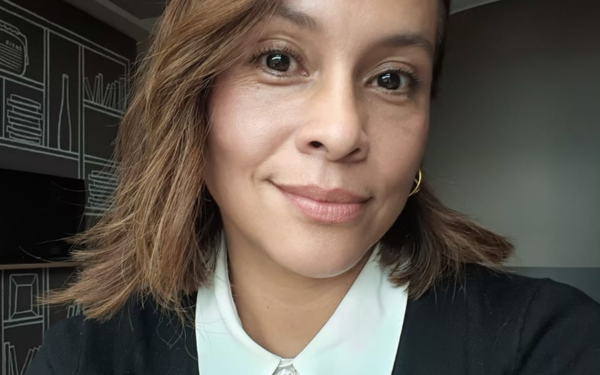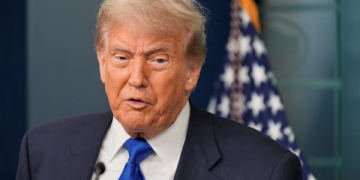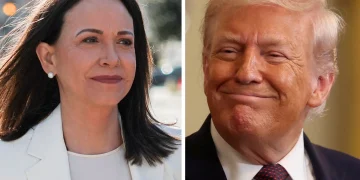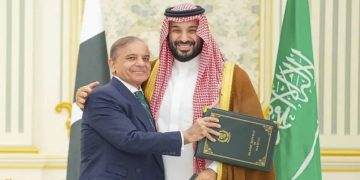Eileen Mairena Cunningham
When indigenous peoples are mentioned in the context of climate change, my mind immediately goes to images of my grandmother’s roofless and flooded house, destroyed by a Category 5 hurricane and a Category 4 storm in quick succession.
I also move beyond the personal, thinking of the extreme weather swings in the Andes that are damaging agricultural production; the Maasai families in Kenya and Tanzania watching their livestock die from droughts or, increasingly, massive floods; and the communities devastated by landslides in the Philippines’ Cordillera mountains.
For indigenous peoples, climate change is more than figures and charts; it is a wound that festers, eating away at our land, resources, spirituality, and culture. The extreme weather events that are growing more frequent and severe disproportionately harm our communities because we rely directly on natural ecosystems.
The decision to hold this year’s United Nations Climate Change Conference (COP30) in the Amazon region has raised our expectations significantly. To be sure, the road to Belém has not been easy. We are hopeful about the proceedings, while also approaching them with the caution and clarity that come from having taken part in climate negotiations many times before, only to be ignored.
These summits are dominated by national policymakers. Still, we have always insisted that our voices be heard – even from the margins – and will continue to do so. Our aspiration is not only to be invited to the negotiating table and given a say in decision-making, but to help create a collective space where everyone can participate as a valued stakeholder.
With more than 3,000 indigenous people from Africa, the Arctic, Asia, North America, Latin America and the Caribbean, the Pacific, and Eastern Europe expected to attend COP30, the Global Caucus of Indigenous Peoples on Climate Change has developed positions on the summit’s main themes. Whether discussing action on climate finance, adaptation, or mitigation, our rights to self-determination and free, prior, and informed consent concerning all matters affecting our lands, territories, and resources must be recognized. These are not favors or nice-to-haves, but the essential principles of a just climate transition.
As COP30’s host, Brazil seeks to make it the “COP of implementation,” which means translating commitments into robust action: capacity and technology transfers, as well as finance that actually reaches those on the front lines of climate change.
For indigenous peoples, implementing climate policies requires direct access to predictable and sustainable finance. Instead of being forced to depend on intermediaries who leave us with crumbs, we should be trusted to manage the funds ourselves, allocating them based on our own needs, timelines, and knowledge systems. The problem with climate finance is not a lack of capacity but a lack of trust and political will.
Moreover, multilateralism – touted as the path to climate salvation – is often skewed in favor of wealthy countries and influential stakeholders. We need partners who treat us as such, rather than as beneficiaries, who recognize our governance structures, support our initiatives, conduct cultural due diligence, and, above all, encourage genuine dialogue.
In debates about how to ensure a just transition, we will continue to stress that clean-energy projects must not be built at the expense of our dispossession. Without strong safeguards, the decarbonization process risks becoming yet another cycle of extractivism. Respect for indigenous peoples’ rights to land and resources must be at the heart of any climate policy.
Likewise, adaptation and mitigation must be approached holistically. We cannot continue to measure success only by carbon sequestration; we must also consider the effects of these efforts on livelihoods, mental and spiritual health, and the cultural continuity of indigenous peoples.
Governments and other institutions must be held accountable at COP30 for the promises they have made over the years. Words should become tangible commitments, particularly in regard to providing indigenous peoples with direct access to finance. This will require a decisive shift in mindset: climate action must do good, not merely avoid harm.
Indigenous peoples, when viewed from this perspective, are part of the solution. Caring for the planet is embedded in our knowledge systems – restoring a forest, protecting a lagoon, and preserving traditional seeds are everyday tasks for us. But to carry out this work, we need real recognition and support from the international community.
The writer, the Indigenous Peoples Organization’s Focal Point to the United Nations Framework Convention on Climate Change, is a Miskitu indigenous woman from the Wanky Awala Kupia Territory on Nicaragua’s Caribbean coast.
©Project Syndicate






































